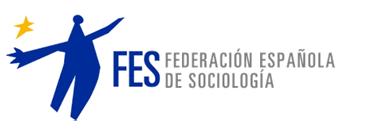Estados, Organizaciones Internacionales y Tecnologías de la Información
Actores de una Red No Moderna
Palabras clave:
Estados, Organizaciones Internacionales, Tecnología de la Información, Agente, RedResumen
La relación entre las Organizaciones Internacionales y los Estados suele analizarse como un fenómeno social racional; sin embargo, este artículo propone que la interacción entre ambos se trata de una red que debe estudiarse desde la asociación de los sujetos. También, se considera que la dinámica de la sociedad internacional no puede explicarse solo desde la interacción entre los Estados y las Organizaciones Internacionales, sino que las Tecnologías de la Información han transformado la red hasta el punto de convertirse en un nuevo agente que contribuye con la transformación de la cadena de traducciones de la sociedad internacional, tal como proponen los postulados de la Teoría Agente-Red.
Descargas
Referencias
Banco Mundial (2020). Datos de Ciencia y Tecnología. Obtenido en: https://datos.bancomundial.org/tema/ciencia-y-tecnologia?view=chart
Barnett, M., & Finnemore, M. (1999). The Politics, Power, and Pathologies of International Organizations. International Organization, 53(4), 699-732. Obtenido en: http://www.jstor.org/stable/2601307
Barkin, J. Samuel (2006). International organization: theories and institutions. Palgrave Macmillan.
Castells, M. (2000). La era de la información: Economía, Sociedad y Cultura. Volumen I: La Sociedad Red. (2ª edición). Blackwell Publishers Inc.; Alianza Editorial. (Original publicado en 1996)
Larrión, J. (2019). Teoría del actor-red. Síntesis y evaluación de la deriva postsocial de Bruno Latour. Revista Española de Sociología, 28 (2), 323-341. Obtenido en: http://dx.doi.org/10.22325/fes/res.2019.03
Latour, B. (1993). Nunca hemos sido modernos. Ensayo de antropología simétrica. Editorial Siglo XXI.
Latour, B. (2001). La esperanza de Pandora. Ensayos sobre la realidad de los estudios de la ciencia. Editorial Gedisa.
Latour, B. (2008). Reensamblar lo social. Una introducción a la teoría del actor-red. Editorial Manantial.
Márquez, L. (2003). Modo de Desarrollo Informacional. Revista Ciencias de la Educación, 2(22), pp. 145-153. Obtenido en: http://servicio.bc.uc.edu.ve/educacion/revista/a3n22/22-9.pdf
Medina, M. (1979). La integración internacional. Revista de Política Internacional, (164), pp. 7-26. Obtenido en: https://dialnet.unirioja.es/descarga/articulo/2495986.pdf
Pignuoli-Ocampo, S. (2015). La posición epistemológica del constructivismo simétrico de Bruno Latour. Cinta de Moebio. Revista de Epistemología de Ciencias Sociales, (52). Obtenido en: https://cintademoebio.uchile.cl/index.php/CDM/article/view/36217/37897
PNUDa (s.f.). ¿Qué son los Objetivos de Desarrollo Sostenible? Obtenido en: https://www1.undp.org/content/undp/es/home/sustainable-development-goals.html el 29/10/2021
PNUDb (s.f.). Objetivo 9: Industria, Innovación e Infraestructura. Obtenido en: https://www1.undp.org/content/undp/es/home/sustainable-development-goals/goal-9-industry-innovation-and-infrastructure.html el 29/10/2021
Sánchez S, R. (2011). Karl Deutsch y su contribución al estudio de las Relaciones Internacionales. Revista Relaciones Internacionales, 79(1). Obtenido en: https://www.revistas.una.ac.cr/index.php/ri/article/view/111
UIT (s.f). Las TIC para el cumplimiento de los Objetivos de Desarrollo Sostenible de las Naciones Unidas. Obtenido en: https://www.itu.int/es/mediacentre/backgrounders/Pages/icts-to-achieve-the-united-nations-sustainable-development-goals.aspx el 1/11/2021
Descargas
Publicado
Número
Sección
Licencia
Derechos de autor 2022 Maria Gabriela Ramos Barrera

Esta obra está bajo una licencia internacional Creative Commons Atribución-NoComercial 4.0.
Todos los trabajos publicados en la revista Sociología y Tecnociencia se distribuyen bajo una Licencia Creative Commons Atribución 4.0 Internacional (CC BY 4.0).
Los autores continúan como propietarios de sus trabajos, y pueden volver a publicar sus artículos en otro medio sin tener que solicitar autorización, siempre y cuando indiquen que el trabajo fue publicado originariamente en la revista Sociología y Tecnociencia.


